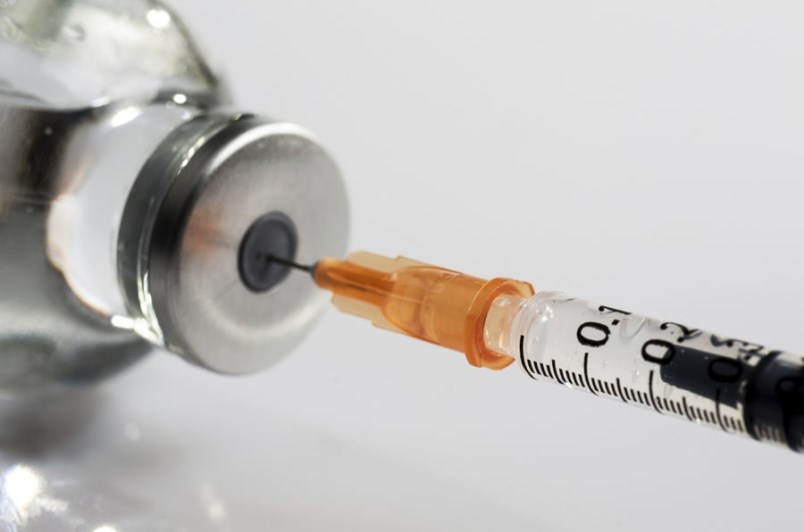Newmarket resident Jessica Di Domenico remains hesitant about getting a COVID-19 vaccine.
The mother of two said the information she has read, such as the accelerated approvals of COVID-19 vaccines and the reports of rare negative responses, such as blood clotting associated with the AstraZeneca vaccine, makes her unwilling to get one.
She is not the only one who feels this way, in Newmarket and beyond.
“All we are trying to do is save humanity. We are trying to see if what is being done is really good for us and we, as parents, have an obligation to protect our children and investigate to the fullest,” Di Domenico said.
In York Region, the demand for first doses began to slow weeks ago as all residents aged 12 and older became eligible for the vaccine. More than 80 per cent of residents aged 12 and older in York Region have received at least one dose as of July 20, which has grown from 75.4 per cent since June 21.
At the beginning of June, when the province accelerated the period between first and second doses, the number of residents receiving a second dose began to eclipse those receiving a first dose.
York Region has provided 1,000 to 1,400 first doses daily since July 2, compared to more than 8,000 second doses daily. Vaccinations are trending downward as more people become fully vaccinated. At its peak, York Region administered 20,737 total doses June 29, of which 19,482 were second doses.
York Region Public Health is trying to increase vaccine confidence with targeted information campaigns, and improving the ease of getting a dose. The region has opened pop-up clinics in malls, plus walk-ins at clinics for both first and second doses as of July 21.
“Please get vaccinated,” York’s medical officer of health Dr. Karim Kurji said in his weekly video update. “It remains the best way to protect yourself and those around you.”
But residents like Di Domenico continue to have concerns, including about rare reports of heart conditions associated with youth getting the vaccine. She said she follows many Facebook groups in which people have reported their reactions to the vaccines.
“There is a lot of information out there to decipher and to discern,” Di Domenico said. “People should be open to information. We are in an information warfare time. Why is it that people are still getting COVID after the vaccine?”
Health Canada states the Pfizer vaccine is 95 per cent effective at protecting trial participants age 16 and above from COVID-19, while Moderna was 94.1 per cent effective two weeks after a second dose. It has also said heart conditions associated with youth getting a vaccine are rare and tend to be mild.
Public Health Ontario stated in a December paper that though vaccines provide protection, some will still get sick after a vaccine, as no vaccine is 100 per cent effective. However, it added there is evidence COVID cases after vaccination are less severe.
A 29-year-old Newmarket resident, who asked to remain anonymous out of concern for workplace repercussions, said he does not feel the need to get a vaccine because of his youth and health. He suspects he may have contracted COVID-19 in the workplace at the start of the pandemic when he was ill for a long period of time.
"First responders, but also people who have compromised immune systems, they feel it's in their best interests, they should get it, absolutely," he said. "People, we're all adults specifically, should have their free will as to whether or not they should get it."
Public Health Ontario estimated in January that there would need to be between 53 and 84 per cent of people fully vaccinated to reach herd immunity, with the greater number considering future, more transmissible COVID-19 variants.
In York Region, the majority of eligible residents have chosen to be vaccinated, with particularly older, more vulnerable residents expressing gratitude and relief about the protection. As well, many frontline workers expressed similar sentiments as vaccinations began last January.
Despite some issues such as long lines at the mass vaccination centre in Newmarket last March, as well as difficulties securing appointments when supplies were more limited, demand for vaccines remained high locally until recently,
Di Domenico said she could not say what information might change her mind, based on what she has seen so far.
The anonymous resident said he does not see a strong need to get a vaccine based on case numbers being low. But he added he would consider getting a vaccine if they prove effective in mitigating COVID-19 variants in the months to come.
Some businesses have started put into place restrictions based on COVID-19 vaccination status, which Newmarket Mayor John Taylor has speculated might move unvaccinated people to change their mind.
The anonymous resident added he might get a vaccine if it becomes needed to travel overseas, though he does not think the concept is fair — especially when cases are low.
"People should have a free will, and not be deprived of their human rights," he said.
Di Domenico said she is also against such restrictions —- and they would not sway her, or like-minded people.
“We’re not going to get a vaccine to go into a restaurant. We’re not going to get a vaccine to see a concert. We’re not going to get a vaccine to receive an education. We’re not going to get a vaccine to have a job,” she said. “This is not the view and vision of the people and parents of this community.”



